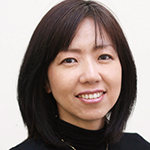- Details
- Category: TESOL Faculty

Professor: TESOL
Dr. Brian Tomlinson is a TESOL Professor in the Anaheim University Graduate School of Education. He is considered to be one of the world's leading experts on materials development for language learning. In 1993 he established the world's first MA dedicated to the study of materials development for language learning (at the University of Luton in the UK) and he founded MATSDA (Materials Development Association). He has been Chair and then President of MATSDA ever since 1993 and, as such, he launched the journal Folio and ran (with Hitomi Masuhara) a number of materials writing workshops in the UK and in Botswana, Malaysia, Mauritius, Mexico, the Seychelles, Singapore, Turkey and Vietnam. He has also organised and presented the opening plenary at thirty international MATSDA conferences. In addition he has given plenary presentations on materials development in over sixty countries. His many books on materials development are considered to be the leaders in the field. They include Materials Development in Language Teaching (Cambridge University Press: 1998, 2011), Developing Materials for Language Teaching (Continuum: 2003), English Language Learning Materials: A Critical Review (Continuum: 2008), Research for Materials Development in Language Learning - with Hitomi Masuhara (Continuum: 2010) and Applied Linguistics and Materials Development - with Hitomi Masuhara (Continuum: 2012). He has also just finished a state of the art survey of the literature on materials development published in the Cambridge University Press journal Language Teaching. Dr. Tomlinson has also published books on language teaching methodology (Teaching Secondary English - with Rod Ellis: Longman 1980), on language through literature (Openings: Penguin: 1994) and on language awareness (Discover English - with Rod Bolitho: Macmillan 1995), as well as contributing to textbooks for Bulgaria, for China, for Ethiopia, for Japan, for Malaysia, for Morocco, for Nigeria, for Turkey, for Namibia, for Singapore and for Zambia. He is currently a Visiting Professor at Leeds Metropolitan University, and an Advisor for the British Council English Language Advisory Group.
- Details
- Category: TESOL Faculty
 Natsuko Shintani, Ph.D.
Natsuko Shintani, Ph.D.
Associate Professor: TESOL
Dr. Natsuko Shintani is a TESOL Associate Professor in the Anaheim University Graduate School of Education. She obtained her Ph.D. from the University of Auckland in 2011. She has worked as a language teacher in Japan and New Zealand, including in her own private language school for children. Her research interests include task-based language instruction, the role of interaction in second language acquisition and written corrective feedback. She has also worked on several meta-analysis studies of form-focused instruction. She has published widely in leading journals and is currently working on a single-authored book, The Role of Input-Based Tasks in Foreign Language Instruction for Young Learners, to be published by John Benjamins.
- Details
- Category: TESOL Faculty
Professor: TESOL
Dr. Jo Mynard is a Professor in the Anaheim University Graduate School of Education, Professor in the English Department, Director of the Self-Access Learning Center (SALC), and Director of the Research Institute for Learner Autonomy Education (RILAE) at Kanda University of International Studies (KUIS) in Chiba, Japan. She completed her Ed.D. in TEFL from the University of Exeter, UK in 2003 and an M.Phil. in Applied Linguistics from Trinity College, University of Dublin, Ireland in 1997. She has lived in Japan since 2015, but has also worked in the United Arab Emirates, France, Spain, Germany, Australia, the USA and Ireland and has been involved in language education since 1993. She is the founding editor of SiSAL Journal (Studies in Self-Access Learning), has been a committee member of the IATEFL Learner Autonomy Special Interest Group since 2001, and is an executive officer for the International Association for the Psychology of Language Learning. Her professional interests are learner autonomy, advising in language learning, affect, and learning beyond the classroom/self-access. She has co-edited four books. Two on learner autonomy (2011; 2014), and two on advising in language learning (2012). She co-authored Reflective Dialogue (Research and Resources in Language Teaching) with Satoko Kato (Routledge, 2016) and Dynamics of a Social Language Learning Community: Beliefs, Membership and Identity (Multilingual Matters, 2020).
Message from Jo Mynard, Ph.D
Hi everyone! I’m really looking forward to meeting you online and engaging in discussions about language teaching and learning!
Books
- Everhard, C. J., Mynard, J., with Smith, R. (Eds.) (2011), Autonomy in language learning: Opening can of worms. Canterbury, UK: IATEFL.
- Kato, S., & Mynard, J. (2015). Reflective dialogue: Advising in language learning. New York, NY: Routledge.
- Ludwig, C., & Mynard, J. (Eds.) (2012), Autonomy in language learning: Advising in action. Canterbury, UK: IATEFL
- Mynard, J., & Carson, L. (Eds.) (2012), Advising in language learning: Dialogue, tools and context. Harlow: Longman.
- Mynard, J., & Ludwig, C. (Eds.) (2014), Autonomy in language learning: Tools, tasks and environments. Faversham, UK: IATEFL.
Book chapters
- Carson, L., &. Mynard, J. (2012). Introduction. In J. Mynard & L. Carson (Eds.), Advising in language learning: Dialogue, tools and context (pp. 3-25). Harlow: Pearson Education.
- Mynard, J., & Troudi, S. (2008). Female Emirati students' perceptions of using a chat room to learn English. In P. Davidson, J. Shewel and W.J. Moore (Eds.) Educational technology in the Arabian Gulf: Theory, research and pedagogy (pp. 249-262). Dubai: TESOL Arabia.
- Mynard, J. (2011). Conclusions. In C. Everhard and J. Mynard with R. Smith (Eds.), Autonomy in language learning: Opening can of worms (p. 253). Canterbury, UK: IATEFL.
- Mynard, J. (2012). A suggested model for advising in language learning. In J. Mynard & L. Carson (Eds), Advising in language learning: Dialogue, tools and context (pp. 26-41). Harlow, UK: Pearson.
- Mynard, J., & Ludwig, C. (2014). Introduction. In J. Mynard & C. Ludwig (Eds.), Autonomy in language learning: Tools, tasks and environments. Faversham, UK: IATEFL.
- Mynard, J. (2017). Investigating social presence in a social networking environment. In K. Van de Poel & C. Ludwig (Eds.). Collaborative language learning and new media: Insights into an evolving field (pp. 276-293). Germany: Peter Lang.
- Mynard, J., & McLoughlin. D. (forthcoming). “Sometimes I just want to know more. I’m always trying.”: The role of interest in sustaining motivation for self-directed learning. In W. Meng Chan, I. Walker, D. Chan and M. Nagami (Eds.) Learning in and beyond the classroom: Ubiquity in foreign language education.
- Mynard, J. (forthcoming). Taking stock and moving forward: Future recommendations for the field of self-access language learning. In L. Velasco Martínez, J. Porras Pulido, J. & T. A. María del Rosario Aragón López (Eds.) Nuevos escenarios en torno a la autonomía del aprendizaje de lenguas extranjeras [New scenarios around the learning of foreign languages].
- Mynard, J. (forthcoming). Advising and self-access learning: Promoting language learner autonomy beyond the classroom. In H. Reinders, S. Ryan, & S. Nakao (Eds.) Innovations in language learning and teaching: The case of Japan. Palgrave Macmillan.
- Sekiya, Y., Mynard, J., & Cooker, L. (2010). 学習者の自律を支援するセルフアクセス学習 [Self-access learning which supports learner autonomy]. In H. Kojima, N. Ozeki & T. Hiromori. (Eds.), 「英語教育学大系」全13巻中の第6巻「成長する英語学習者―学習者要因と自律学習」大修 館書店 [Survey of English Language Education: Vol. 6. Developing English learners: Learner factors & autonomous learning] (pp. 191-210). Tokyo: Taishukan-shoten.
- Sekiya, Y., Mynard, J., & Cooker, L. (2010). 大学英語教育への応用 8. セルフアクセス学習と大学教育 [Implications for university education: 8. Self-access learning and university education]. In H. Kojima, N. Ozeki & T. Hiromori. (Eds.), 「英語教育学大系」全13巻中の第6巻「成長する英語学習者―学習者要因と自律学習」大修 館書店 [Survey of English Language Education: Vol. 6. Developing English learners: Learner factors & autonomous learning] (pp. 225-227). Tokyo: Taishukan-shoten.
- Thornton, K., & Mynard, J. (2012). Investigating the focus of advisor comments in a written advising dialogue. In C. Ludwig and J Mynard (Eds.), Autonomy in language learning: Advising in action (pp. 137-153). Canterbury, UK: IATEFL.
- Troudi, S., & Mynard. J. (2014). The Internet chat room: A tool for promoting learner autonomy. In S. Troudi & R. Al Mahrooqi (Eds.), Using technology in foreign language teaching. Cambridge, UK: Cambridge Scholars Publishing.
- Valdivia, S., McLoughlin, D., & Mynard, J. (2012). The portfolio: A practical tool for advising learners in a self-access centre in Mexico. In J. Mynard & L. Carson (Eds.), Advising in language learning: Dialogue, tools and context (pp. 205-210). Harlow: Pearson Education.
- Yamaguchi, A., Hasegawa, Y., Kato, S., Lammons, E., McCarthy, T., Morrison, B. R., Mynard, J., Navarro, D., Takahashi, K., & Thornton, K. (2012). Creative Tools that Facilitate the Advising Process. In C. Ludwig and J. Mynard (Eds.) Autonomy in language learning: Advising in action (pp. 115-136). Canterbury, UK: IATEFL.
Articles in referred journals
- Castellano, J., Mynard, J., & Rubesch, T. (2011). Student technology use in a self-access centre. Language Learning and Technology, 15(3), 12-27.
- Curry, N., Mynard, J., Noguchi, J., & Watkins, S. (2017). Evaluating a self-directed learning course in a Japanese university. International Journal of Self-Directed Learning, 14(1), 17-36.
- McLoughlin, D., & Mynard, J. (2009). An analysis of higher-order thinking in online discussions. Innovations in Education and Teaching International, 46(2), 147-160.
- McLoughlin, D., & Mynard, J. (2015). How do independent language learners keep going? The role of interest in sustaining motivation. rEFLections: Special issue: Innovation in ELT, 19, 38-57.
- McLoughlin, D., & Mynard, J. (forthcoming). How do self-directed learners keep going? The role of interest in sustained learning. 2017 PanSIG Journal.
- Mynard, J. (2006). A teacher's role in using synchronous computer-mediated communication to promote learner autonomy. The Language Teacher, 30(2), 13-16.
- Mynard, J., & Almarzouqi, I. (2006). Investigating peer tutoring. ELT Journal, 60(1), 13-22.
- Mynard, J. (2007). A blog as a tool for reflection for English language learners. Asian EFL Journal: Professional teaching articles, 24. http://www.asian-efl-journal.com/pta_Nov_07_jm.php
- Mynard, J., & Navarro, D. (2010). Report on the Japan Association of Self-Access Learning (JASAL) Forum, at the Japan Association for Language Teaching (JALT) 2009 Conference in Shizuoka. Studies in Self-Access Learning Journal, 1(1), 65-67.
- Mynard, J. (2011). Learning environments that facilitate reflection on language learning. JALT CALL Journal, 7(3), 293-306.
- Mynard, J., & Thornton, K. (2012). The degree of directiveness in written advising: A preliminary investigation. Studies in Self-Access Learning Journal, 3(1), 41-58.
- Mynard, J. (2014). Striving for diversity, accessibility and quality: Evaluating SiSAL Journal. Studies in Self-Access Learning Journal, 5(2). Retrieved from: http://sisaljournal.org/archives/june14/mynard/
- Mynard, J. (2016). Looking backwards and forwards: Evaluating a 15-year-old SALC for continued growth. Studies in Self-Access Learning Journal, 7(4), 427-436.
- Mynard, J., & Stevenson, R. (2017). Promoting learner autonomy and self-directed learning: The evolution of a SALC curriculum. Studies in Self-Access Learning Journal, 8(2), 169-182.
- Takahashi, K., Mynard, J., Noguchi, J., Sakai, A., Thornton, K., & Yamaguchi, A. (2013). Needs analysis: Investigating students’ self-directed learning needs using multiple data sources. Studies in Self-Access Learning Journal, 4(3), 208-218.
- Valdivia, S., McLoughlin, D., & Mynard, J. (2011). The importance of affective factors in self-access language learning courses. Studies in Self-Access Learning Journal, 2(2), 91-96.
- Watkins, S., Curry, N., & Mynard, J. (2014). Piloting: Re-designing and evaluating a self-directed learning curriculum. Studies in Self-Access Learning Journal, 4(3), 58-78. Conference proceedings
- Kershaw, M., Mynard, J., Promnitz-Hayashi, L., Sakaguchi, M., Slobodniuk, A., Stillwell, C., & Yamamoto, K. (2010). Promoting autonomy through self-access materials design. In A. Stoke (Ed). JALT 2009 Conference Proceedings: The Teaching-Learning Dialogue: An Active Mirror, pp. 151-159.
- McLoughlin, D., & Mynard, J. (2007). Using online forums and promoting higher-order thinking. In Jendli, A., Troudi, S. & Coombe, C. (Eds.) The Power of Language: Perspectives from Arabia. TESOL Arabia 2006 conference proceedings. Dubai: TESOL Arabia, pp. 344-356.
- Mynard, J., & Sorflaten, R. (2003). Facilitating learning through peer tutoring. In Syed, Z., Coombe, C. and Troudi, S. (Eds). TESOL Arabia 2002 conference proceedings Volume VIII. Critical reflection and practice, pp. 287-302.
- Mynard, J. (2004). Investigating evidence of learner autonomy in a virtual EFL classroom: A grounded theory approach. In J. Hull, J. Harris, and P. Darasawang (Eds.). Research In ELT: proceedings of the international conference 9-11 April, 2003. School of Liberal Arts and the Continuing Education Center, King Mongkut's University of Technology Thonburi, Thailand pp. 117-127.
- Mynard, J. (2009). How blogging can promote learner autonomy. In Carroll, M., Castillo, D., Cooker, L., & Irie, K. (Eds.). (2009). Proceedings of the Independent Learning Association 2007 Japan Conference (online): Exploring theory, enhancing practice: Autonomy across the disciplines. Kanda University of International Studies, Chiba, Japan, October 2007.
- Mynard, J. (2009). Using action research to improve a TOEIC preparation course. In B. Beaven, B. IATEFL 2008: Exeter conference selections. Canterbury: IATEFL, pp. 171-173.
- Mynard, J. (2010). Promoting cognitive and metacognitive awareness through self-study modules: An investigation into advisor comments. In W. M. Chan, S. Chi, K. N. Chin, J. Istanto, M. Nagami, J. W. Sew, T. Suthiwan, & I. Walker (Eds.), Proceedings of the Fourth Centre for Language Studies International Conference (pp. 610-627). Singapore: National University of Singapore.
- Mynard, J., & Navarro, D. (2010). Dialogue in self-access learning. In A. Stoke (Ed). JALT2009 Conference Proceedings: The Teaching-Learning Dialogue: An Active Mirror, pp. 95-102.
- Mynard, J. (2012). Raising awareness of learning processes with technology tools. The Asian Conference on Technology in the Classroom, Osaka, Japan 2012, pp. 1-9.
- Mynard, J., & McLoughlin, D. (2016). Sustaining motivation: Self-directed learners’ stories. Proceedings of the 7th Centre for Language Studies International Conference (pp. 217-228). Singapore: National University of Singapore.
Articles in institutional journals
- Burke, M., Hooper, D., Kushida, B., Lyon, P., Mynard, J., Sampson, R., & Taw, P. (2018). Observing a social learning space: A summary of an ethnographic project in progress. Relay Journal, 1(1), 209-220.
- Chen, A., & Mynard, J. (2018). Student perceptions of the English lounge after a layout change. Relay Journal, 1(1), 221-235.
- Murphey, T., Mynard, J., & Shanley, M. (2012). Editorial strategies for stimulating professional collaboration with peer reviewed publications. Studies in Linguistics and Language Teaching, 23.
- Murphey, T., & Mynard, J. (2014). An evaluation of the success of peer-review journals at KUIS. Studies in Linguistics and Language Teaching, 25.
- Mynard, J. (2007). Promoting learner autonomy in a Japanese college. Cross Culture (23), 43-53.
- Mynard, J. (2008). The Koryo College blog project 2005-2006: Observations and suggestions for future directions. Cross Culture, 24, 51-63.
- Mynard, J. (2012). An analysis of written advice on self-directed learning modules and the effect on learning. Studies in Linguistics and Language Teaching, 23, 125-150.
- Mynard, J., & Murphy, P. (2013). An investigation into offering flexible language courses utilising blended learning. Studies in Linguistics and Language Teaching, 24.
- Mynard, J. (2013). The role of chatting in the language classroom. Working Papers in Language Education and Research, 1(2), 44-57.
- Mynard, J., & McLoughlin, D. (2014). Affective factors in self-directed learning. Working Papers in Language Education and Research, 2(1), 27-41.
- Mynard, J., Curry, N., Noguchi, J., & Watkins, S. (2016). Studying the impact of the SALC curriculum on learning. Studies in Linguistics and Language Teaching, 27, 45-58.
- Mynard, J. (2017). The role of advising in developing awareness of learning processes: Three case studies. Studies in Linguistics and Language Teaching, 28, 123-161.
- Mynard, J. (2018). “Still sounds quite a lot to me, but try it and see”. Reflecting on my non-directive advising stance. Relay Journal, 1(1), 98-107.
- Mynard, J., Kato, S., & Reinders, H. (2018). Editorial. Relay Journal, 1(1), 1-5.
- Mynard, J., Kato, S., & Yamamoto, K. (2018). Reflective practice in advising: Introduction to the column. Relay Journal, 1(1), 55-64.
- Conference proceedings
- Mynard, J., & McLoughlin, D. (2016). Sustaining motivation: Self-directed learners’ stories. Proceedings of the 7th CLaSIC conference, Singapore, 217-228.
- Lammons, E., Momata, Y., Mynard, J., Noguchi, J., Watkins, S. (2015). Developing and piloting an app for managing self-directed language learning: An action research approach. In F. Helm, L. Bradley, M. Guarda, & S. Thouësny (Eds), Critical CALL – Proceedings of the 2015 EUROCALL Conference, Padova, Italy (pp. 1-6). Dublin: Research-publishing.net. doi:10.14705/rpnet.2015
- Mynard, J. (2012). Raising awareness of learning processes with technology tools. The Asian Conference on Technology in the Classroom, Osaka, Japan 2012, pp. 1-9.
Book reviews
- Mynard, J. (2006). Book review of "Learner autonomy across cultures: language education perspectives” Edited by David Palfreyman and Richard Smith". Independence, 37, 28-30.
- Mynard, J. (2008). Book review of “Learner autonomy in CALL environments” by Klaus Schwienhorst (2008). Independence, 44, 41-44.
- Mynard, J. (2012). Book review of “M. Nicolson, L. Murphy, & M. Southgate (Eds). (2011). Language teaching in blended contexts. Edinburgh, U.K.: Dunedin Academic Press”. London Review of Education.
- Mynard, J. (2017). Book review: Language learner autonomy: Theory, practice and research by David Little, Leni Dam and Lienhard Legenhausen. Studies in Self-Access Learning Journal, 8(4), 362-370.
- Mynard, J. (2016). Book review of “Elizabeth R. Miller: The language of adult immigrants: Agency in the making”. Applied Linguistics, 37(3), 445-450. doi: 10.1093/applin/amv077
- Details
- Category: TESOL Faculty

Graduate School of Education Chair of Research
TESOL Professor, Graduate School of Education
Dr. Hayo Reinders is Chair of Research and TESOL Professor for the Anaheim University Graduate School of Education. Holding a Ph.D. in Language Teaching and Learning from the University of Auckland, Dr. Reinders is also Professor of Education and Head of Department at Unitec in Auckland, New Zealand. His previous positions include Head of Learner Development at Middlesex University in London, Director of the English Language Self Access Centre at the University of Auckland in New Zealand and associate professor at RELC in Singapore. He has worked with teachers from a large number of countries worldwide and has been visiting professor in Japan, Thailand, Mexico and the Netherlands. Dr. Reinders edits the journal 'Innovation in Language Learning and Teaching' as well as a book series on ‘New Language Learning and Teaching Environments’ for Palgrave Macmillan. He is Editor of Innovation in Language Learning and Teaching, and Convenor of the AILA Research Network for CALL and the Learner. Dr. Reinders' interests are in technology in education, learner autonomy, and out-of-class learning, and he is a speaker on these subjects for the Royal Society of New Zealand. His most recent books are on teacher autonomy, teaching methodologies, and second language acquisition.
- Details
- Category: TESOL Faculty

Associate Professor: TESOL
Dr. Masatoshi Sato is a TESOL Associate Professor in the Anaheim University Graduate School of Education. Dr. Sato earned his Ph.D. in Educational Studies, Language Acquisition and a Master of Arts in Second Language Education from McGill University, as well as a Graduate Certificate in TESOL from the University of New Mexico and a Bachelor of Arts in International and Intercultural Communication from Kobe University. In addition to serving as Associate Professor in TESOL at Anaheim University, Dr. Sato is a Professor in the Department of English at Universidad Andrés Bello, Chile. His research interests include peer interaction, corrective feedback, learner psychology, and teacher education. He is interested in ways in which foreign language learners’ grammatical knowledge can be used accurately and fluently during real-world communication. He has published in various international journals, such as International Review of Applied Linguistics, Language Awareness, Language Learning, Language Teaching, The Modern Language Journal, Studies in Second Language Acquisition, and System. He recently co-edited books from John Benjamins (with Susan Ballinger, McGill University: 2016) and Routledge (with Shawn Loewen, Michigan State University: 2017). His new co-edited volume from Routledge will appear in 2018. He is the recipient of the 2014 ACTFL/MLJ Paul Pimsleur Award.
As a second language researcher, educator, and learner, I am very excited to share my experience and knowledge with you! I hope that we together discover how we can transfer research findings to actual classrooms so that second language research becomes more meaningful and useful for teachers!

